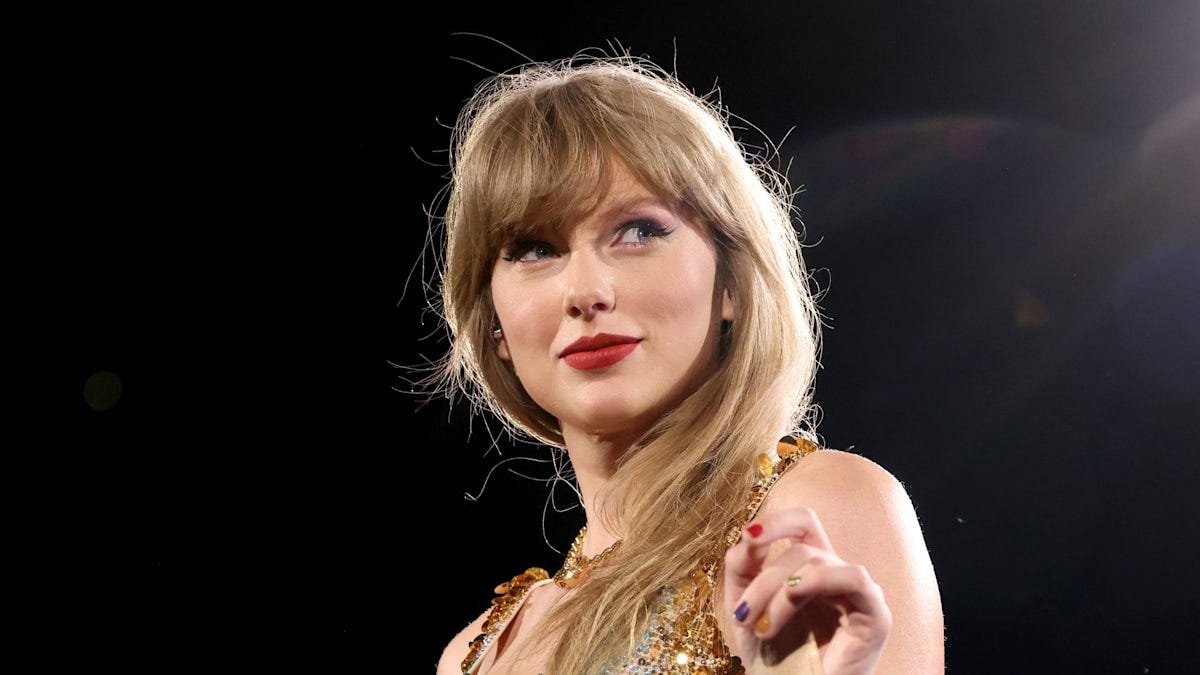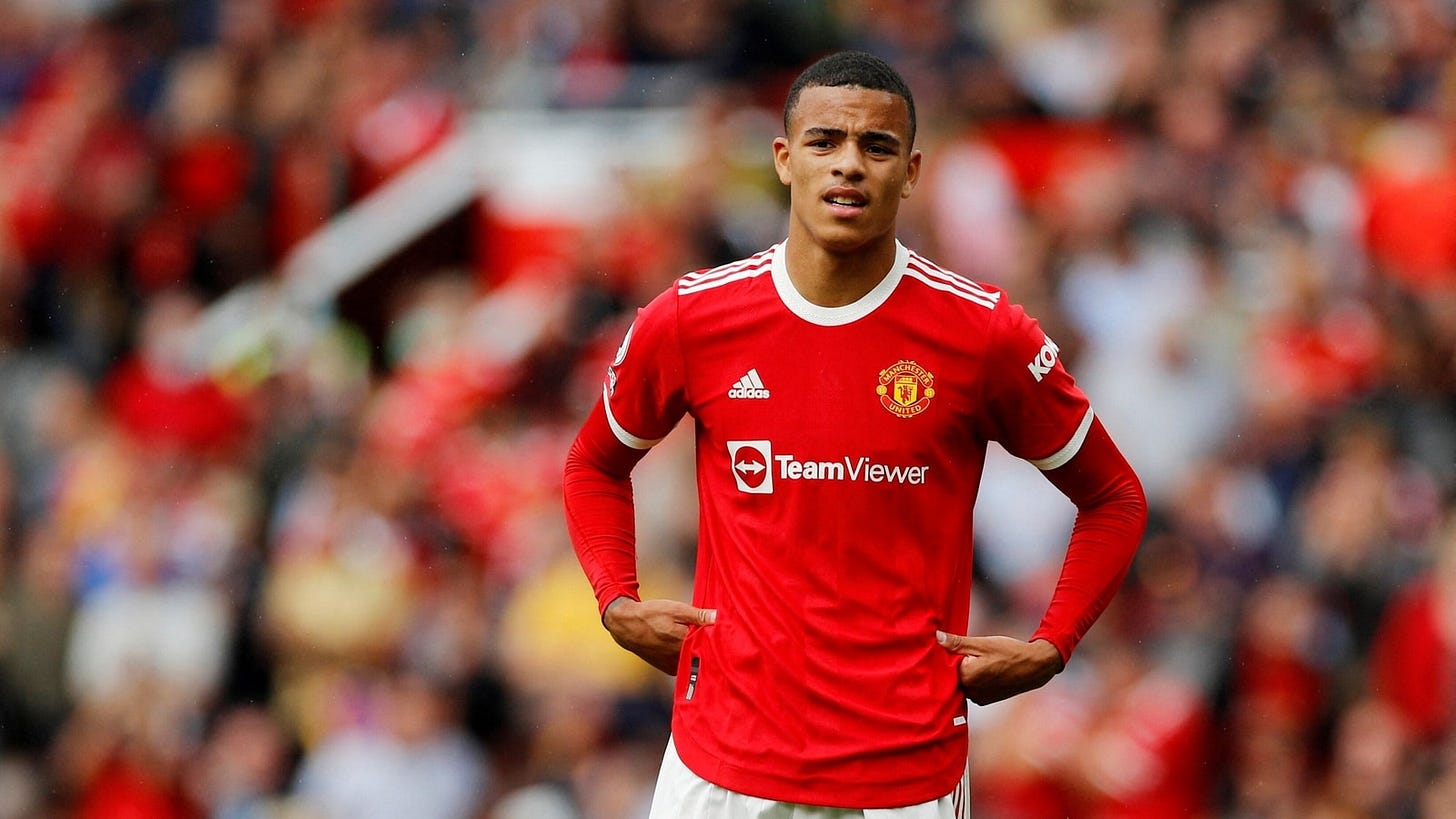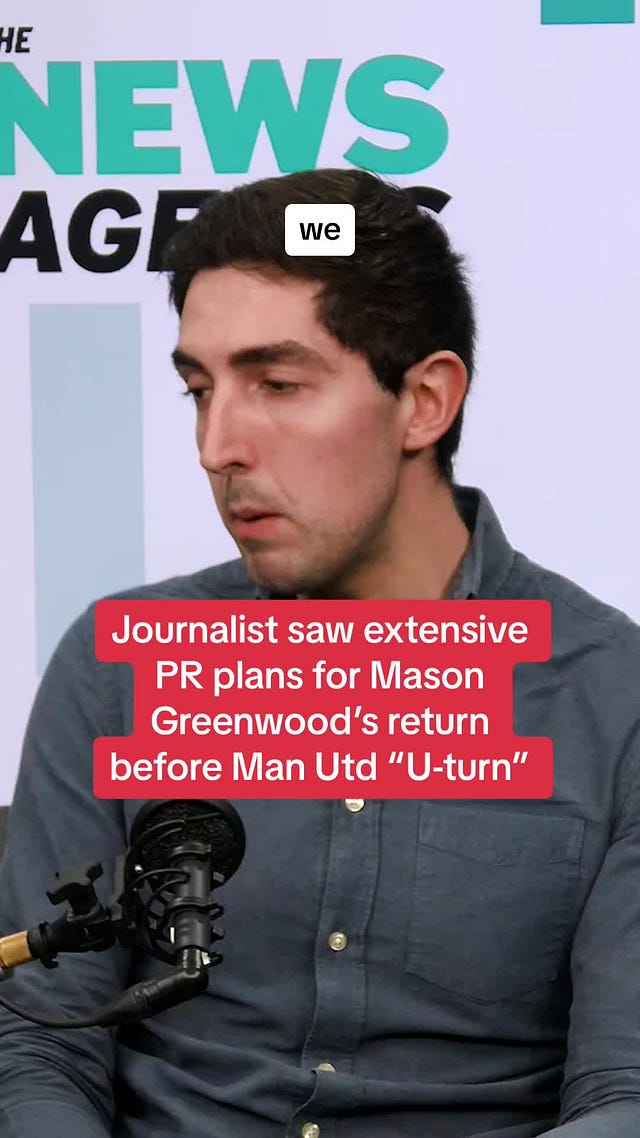Borkowski Weekly Media Trends: Lucy Letby, Scooter Braun & MORE!
PLUS: PR lessons from Man United's Greenwood nightmare & Fyre Festival relaunch
The Lore of Lucy Letby
At the start of this week, front pages and social media feeds were inundated with the face of Lucy Letby, now officially the UK’s most prolific serial child killer, as she was convicted for the murder of seven babies and the attempted murder of six more. The coverage was almost breathless, reminiscent of the frenzy around the tragic disappearance and death of Nicola Bulley earlier this year, which Observer columnist Zoe Williams described at the time as a “carnival of hysteria”.
But here, with fewer unanswered questions to speculate on, some publications began to scrape the barrel for clickbait that walked the fine line between tastelessness and curiosity. There were of course the predictable regional reports from the community where Letby was raised, featuring the usual interviews with appalled locals expressing “anger, despair, rage, shock, grief, confusion and pain,” as well as the necessary investigation into the timeline that resulted in these tragedies. But then followed the more cringe-worthy articles with salacious headlines shouting the likes of “Inside Lucy Letby’s £200k beige home with childlike bedroom that held clues to baby murders”, “Lucy Letby’s one chaotic habit that she couldn’t stop and led to her downfall,” and “How Lucy Letby used a secret code to record the dates of her murders in a diary she kept in her bedroom”.
The modern obsession with true crime podcasts and TV documentaries could easily be blamed for the public’s apparent desire to consume every detail of the latest murder story sweeping headlines. However, one only needs to look back at the explicit coverage of Jack the Ripper in the 19th century to see that the UK’s appetite for ghoulish media is nothing new. Everyone knows sex sells, but this week has been a stark reminder that murder does too.
Braun Breakdown
In an unsurprising turn of events this week, the music industry is again abuzz with speculation surrounding Scooter Braun. Both Ariana Grande and Demi Lovato have severed managerial ties with the music mogul, and rumours are rife that Justin Bieber, Braun’s last high-profile client, might be the next to exit. As questions mount about the sudden exodus, many amateur sleuths have been left hunting for answers as to what might have caused this latest shake-up.
Braun first gained widespread recognition for his role in discovering and nurturing the ‘talent’ of Justin Bieber, having come across his infamous YouTube covers back in the late noughties. After forcing Bieber onto the world, Braun acquired an enviable roster of stars who would dominate the pop music scene of the 2010s.
Yet Braun’s journey through the music business has been anything but smooth, marked by twists, turns and numerous high-profile controversies. At the forefront of these challenges is the infamous legal battle with Kesha, who bravely came forward with accusations of sexual assault. The ensuing legal quagmire not only cast a shadow over Braun’s reputation but also brought Kesha’s music career to a grinding halt, leaving her fans to protest against Braun as they anxiously waited for new releases.
Adding to the list is the infamous dispute involving Taylor Swift. Braun’s acquisition of the rights to Taylor Swift’s original music ignited a heated public feud. Feeling blindsided by the deal, Swift voiced her frustration at not being consulted about the sale of her music catalogue. Her countermeasure was a PR masterstroke. She decided to re-record her entire music collection, releasing each of her old albums with the post-script ‘Taylor’s Version’, effectively rendering Braun’s purchase valueless.
Given this history, it’s no wonder that the abrupt departure of Ariana Grande and Demi Lovato has sparked curiosity. Both artists had previously defended Braun against these high-profile controversies and stood by his side through thick and thin. The sudden shift in their allegiances raises questions about what might be looming.
Scooter's mercurial nature will likely enable him to survive whatever is about to come out if it ever does. But this hasn’t stopped Swifties from speculating that this is the latest move in the meticulously planned chess game that is Taylor Swift’s career. As she reaches even greater heights with’ The Eras Tour’ and the release of her smash album 1989 (Taylor’s Version), could this Braun saga be a stroke of Taylor’s strategic genius, the proverbial cherry adorning her Stratospheric Era?
Manchester United's PR disaster
United's drawn-out Mason Greenwood saga has been a self-inflicted PR nightmare. Greenwood, a talented English striker, was charged with attempted rape last year, but the case was later dropped. Even after seven months since the main witness withdrew cooperation, the club is embroiled in a crisis, tarnishing the reputation of the country's leading football club and brand.
United missed an opportunity during the summer transfer and preseason to discreetly transfer Greenwood. The lingering presence of a disturbing voice recording online meant the striker would never live down his allegations. Other clubs, including rivals Manchester City, have faced similar challenges, but United's global stature demands unique handling, especially when celeb supporters like Rachel Riley and Gary Neville have publically criticised the club's approach.
The Athletic's Adam Crafton recently exposed United's detailed crisis strategy regarding Greenwood's return, covering aspects from training photos to interactions with external stakeholders categorised as supportive, open-minded, or hostile. The fact Crafton exposed that domestic abuse charities were assumed to be hostile in this plan portrayed a sense that United were insensitive to the situation and on the defensive - prioritising their image over everything else.
To comms professionals, this is a routine piece of strategy work, but the fact that people within the club have leaked it to world-renowned journalists shows the internal fury at United dragging their feet over their ultimate decision and their desire to integrate Greenwood back into the squad.
Handling sensitive issues demands swift, strategic decision-making, and Manchester United's approach to the Greenwood situation highlights the need to manage external perceptions and internal alignment. For globally recognised brands like United, actions are under magnified scrutiny, and the club's naivety was their ultimate downfall.
Fyre Fest 2.0
Six years after the epic failure of Frye Fest, its founder Billy McFarland announced that he is relaunching following a stint in prison for committing fraud. Despite presale tickets costing a staggering $499 with no lineup teasers or location announcements other than “targeted for the end of 2024 in the Caribbean,” Fyre 2 sold out.
We’re used to seeing punters clamour over exclusive, pricey festival tickets for the taste of the VIP lifestyle, but take yourself back to the 2017 disaster, and you're left scratching your head.
McFarland pedalled Fyre as the ultimate luxury festival experience on a posh private Island with dining and glamping facilities, but the festival was the ultimate flop. From Blink-182 cancelling their set to a sea of disaster-relief tents, and not forgetting the notorious soggy cheese sandwich which went viral, sat in a polystyrene box.
The question will be whether McFarland employs and similar promotional tactic, like using high-profile influencers to send coded Instagram posts. It's unlikely that the likes of Bieber and Kendal Jenner, who shared posts of the star-studded lineup on their social media, will want to associate their brand with Big Bad Billy following Netflix globally shaming Fyre, sparking a flood of memes that still have cultural significance.
Like Anna Delvey or the ‘fake heiress’, who defrauded banks and the New York City elite, which McFarland also briefly lived with, there is always a peculiar fascination with the swindler and their brazen shamelessness.
As with many series based on con artists, the crook is often depicted as self-deluded, charismatic, but calm in a crisis, a combination which captivates us. But one thing is sure: if Frye Fest 2.0 isn’t all that McFarland claims to be, the jest can only be on the punters who took the gamble.
Human nature gravitates towards spectacle and controversy. The infamy of the original festival, McFarland's bold comeback, and societal curiosity about a potential repeat or redemption fueled Fyre Fest 2.0's ticket sales. Just as people are fascinated by notorious con artists, they're attracted to dramatic stories, regardless of uncertain outcomes. The takeaway: in the viral age, even bad publicity can spark immense interest.










